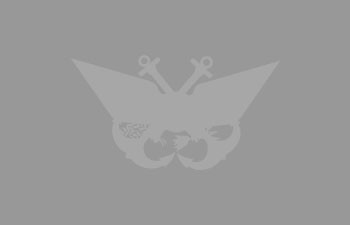
Seven months into the implementation of the IMO 2020 sulphur cap, which shaped a monumental shift for the shipping industry to less-polluting fuels, the issues with regard to the quality of bunkers persis, despite being sidetracked by the COVID-19 pandemic.
Speaking in a recent webinar hosted by Capital Link, Nikolas P. Tsakos, founder and Chief Executive Officer (CEO) of the Greek tanker owner and operator Tsakos Energy Navigation (TEN) gave an insight into the ongoing challenges arising from the new cocktail of bunkers being made available on the market pos January 1, 2020.
“2020 would have been a great game-changer, however, we had to compete with COVID-19 instead,” Tsakos said.
“Our ships are still suffering huge financial losses from the quality of the new generation of cocktails of bunkers provided. When I see my technical department, they are always very mad because of the damages this issue has created.
“We have four ships facing serious engine problems because of poor quality of bunkers, creating delays.”
As explained the ships in question, like most other ships operated by TEN, have been employed on long-term contracts.
Namely, the company has 45 vessels on long-term charters, that are basically employed on securing the company’s financial costs are covered, while the remaining 25 vessels are employed on the spot market, with their earnings assigned to cover shareholders’ dividends.
Hence, the charterers would bear the costs of the downtime and repairs affected ships have to undergo as a result of these issues. This is due to the fact that time-charterers are the ones responsible for providing bunkers to the ships they chartered.
“So we are in continuous discussions with them, and they are covering a big part of those expenses,” Tsakos said.
The IMO 2020 did create a lot of hype on the market in relation to the availability and quality of the new bunkers. Nevertheless, the sporadic reports from various industry bodies point to a relatively smooth transition to low-sulphur fuels.
As Tsakos insisted, challengers persist but have been put on the back-burner due to COVID-19.
According to the recently released data from the ING bank, very low sulphur fuel oil (VLSFO) has been the preferred choice of owners rather than marine gasoil, making up for 70 % of the total fuel oil sales in Singapore, a major bunkering hub, in the first six months of this year.
Marine gasoil accounted for 11%, while high sulphur fuel oil sales (HSFO) bunkered by scrubber-fitted ships accounted for 18% of the sales.
During his tenure at INTERTANKO Tsakos has been vocal against scrubbers, a technology that dominated the discourse in the shipping industry due to their lucrative premiums.
TEN did not install any scrubbers on board its ships.
Today he stands firm behind this position, describing scrubber investments as “throwing money through the window”.
“On a personal, company note, the decision had to do with the environmental issues. I have been the chairman of the Hellenic Marine Environment Protection Association (HELMEPA) years ago, and I could not accept the fact that instead of polluting the skies we would throw ‘questionable residuals” from the scrubber washwater into the sea,” he pointed out.
“Our decision was purely based on a gut feeling that it was not good to throw all this rubbish into the sea.”
As explained, the company didn’t even consider the financial benefits from the potential installation of scrubbers due to the environmental position on the technology.
Commenting on the outlook for ship fuels, Tsakos said he doesn’t believe shipowners would be taking a huge chance on LNG as a fuel.
“I believe LNG as fuel is a good interim solution. But, the interim used to cover a duration of up to 30 years, meaning it could cover a lifetime of an asset. However, by bringing things to 2030, the interim has become quite narrower, covering a period of 10 years. So, LNG is becoming more of a question mark than a year ago.”
TEN is a diversified energy company with a 150-year reputation, which owns and operates crude tankers, product tankers, shuttle tankers, as well as LNG carriers. As explained, the strategy enables the company to better control its risks.
Commenting on the LNG outlook, Tsakos said he was never sold on the idea that LNG would solve everything.
“We have not invested heavily in the market, but we remained continuously in the sector. And one of the advantages of being a diversified player in the tanker industry is that we can look at the LNG market comfortably. We have two of our LNG carriers covered well into next year with very accretive rates and we are in final negotiations for a five-year charter for a newbuilding LNG carrier.”
Earlier this month the company ordered three shuttle tankers on the back of a long-term charter.
Moving forward, TEN plans to focus its ordering on the VLCC sector, even without securing long-term charters.
Due to the ongoing uncertainty with regard to fuel types and engine types, Tsakos believes there will be a diminishing ordering activity in the next five years. This will probably take time until a new vessel design comes out that would be widely accepted in the industry.
With respect to fleet rejuvenation plans, Tsakos said selling older assets is a very important part of the company’s strategy, with half-a-dozen ships earmarked for sales once the markets and assets values pick up.
One of the oldest ships in the company’s fleet is 14-years old.
The post Tsakos: We have four ships facing serious engine problems due to poor bunker quality appeared first on Offshore Energy.
